Turkey tail mushroom (Trametes versicolor) has been used for centuries in traditional medicine systems worldwide, particularly in China where it's known as "Yun Zhi." This distinctive mushroom, named for its colorful, fan-shaped appearance resembling a turkey's tail, has gained significant attention in recent years for its impressive health benefits. If you're interested in incorporating this powerful medicinal mushroom into your wellness routine, this comprehensive guide will show you exactly how to use turkey tail mushroom effectively and safely.
What Is Turkey Tail Mushroom?
Turkey tail mushroom grows abundantly on dead logs and tree stumps in woodland environments across the globe. It's easily recognizable by its multicolored bands of brown, tan, gray, and sometimes blue or green, arranged in concentric circles resembling turkey feathers. Unlike culinary mushrooms, turkey tail has a tough, leathery texture that makes it unsuitable for regular consumption as food.
What makes turkey tail mushroom special is its rich content of bioactive compounds, particularly:
- Beta-glucan polysaccharides: Complex carbohydrates that support immune function
- Polysaccharide-K (PSK): A protein-bound polysaccharide used medicinally in Japan
- Polysaccharide Peptide (PSP): Another beneficial compound with immune-modulating properties
- Phenols and flavonoids: Powerful antioxidants that reduce inflammation
These compounds contribute to turkey tail's impressive range of potential health benefits, making it one of the most researched medicinal mushrooms available today.
Remarkable Health Benefits of Turkey Tail Mushroom
Immune System Support
Turkey tail mushroom is perhaps best known for its immune-boosting properties. The polysaccharides in turkey tail act as immunomodulators, helping to balance and enhance immune function. Research shows that these compounds can stimulate the production of cytokines and immune cells that help the body fight infections and disease.
Digestive Health and Gut Microbiome Support
Turkey tail contains prebiotic fiber that nourishes beneficial gut bacteria. Studies suggest that turkey tail may improve the balance of gut microbiota by increasing populations of beneficial bacteria like Bifidobacterium and Lactobacillus while reducing potentially harmful bacteria.
Antioxidant Properties
With over 35 different phenolic compounds identified in turkey tail extracts, this mushroom provides powerful antioxidant protection. These compounds help neutralize free radicals that can damage cells and contribute to inflammation and aging.
Cancer Support
One of the most extensively researched areas of turkey tail benefits is in cancer care. The PSK in turkey tail has been used in Japan as an adjunct therapy for cancer treatment since the 1970s. Studies suggest that turkey tail may help enhance the effects of standard cancer treatments while potentially reducing side effects.
Additional Benefits
Turkey tail may also provide:
- Anti-inflammatory effects
- Support for respiratory health
- Potential antiviral properties
- Liver protective effects
- Blood sugar regulation support

How to Use Turkey Tail Mushroom
There are several effective ways to incorporate turkey tail mushroom into your wellness routine. The method you choose will depend on your preferences, convenience, and specific health goals.
Turkey Tail Mushroom Tea
One of the most traditional ways to consume turkey tail is as a tea or decoction. This method helps extract the water-soluble beneficial compounds.
Traditional Method (Using Dried Mushrooms):
- Break 3-5 grams of dried turkey tail mushrooms into small pieces
- Add to 4-5 cups of water in a pot
- Bring to a boil, then reduce to a simmer
- Simmer for at least 1 hour (some traditions recommend up to 2 hours for maximum extraction)
- Strain and drink 1-2 cups daily
- Optional: Add honey, lemon, ginger, or cinnamon to improve flavor
Quick Method (Using Turkey Tail Powder):
- Add 1-2 teaspoons (approximately 2-4 grams) of turkey tail powder to a cup
- Pour hot water over the powder
- Stir well and let steep for 5-10 minutes
- Add sweetener or other flavorings if desired
Turkey Tail Supplements
For convenience and consistent dosing, supplements are an excellent option.
Capsules:
- Typically contain 500-1000mg of turkey tail mushroom powder per capsule
- Follow the manufacturer's recommended dosage (typically 2-3 capsules daily)
- Look for products specifying fruiting body extract rather than mycelium grown on grain
Tinctures:
- Liquid extracts that contain concentrated beneficial compounds
- Follow the recommended dosage on the product (typically 30-60 drops, 1-3 times daily)
- Hold under the tongue for 30 seconds before swallowing for better absorption
Turkey Tail Powder
Versatile and easy to incorporate into daily life:
- In beverages: Add 1-2 teaspoons to smoothies, coffee, or juice
- In cooking: Mix into soups, broths, or sauces
- In baking: Incorporate into bread, muffins, or energy bars
- In overnight oats or yogurt: Stir in 1 teaspoon with other ingredients
Recommended Dosage
While there is no standard established dosage for turkey tail mushroom, most research and traditional use suggest:
- General wellness support: 1-3 grams daily of dried mushroom or powder
- Immune support during illness: Up to 4-9 grams daily (divided into multiple doses)
- Clinical studies using PSK: Often use doses of 3 grams daily
It's always best to start with a lower dose and gradually increase, paying attention to how your body responds.
Making Turkey Tail Mushroom Broth
A nutritious broth can be a delicious way to enjoy turkey tail's benefits:
Ingredients:
- 15-20 grams dried turkey tail mushrooms
- 8 cups water
- 1 tablespoon olive oil or coconut oil
- 1 onion, chopped
- 2 garlic cloves, minced
- 1 inch ginger, sliced
- 1 tablespoon tamari or soy sauce (optional)
- Salt and pepper to taste
- Optional: other medicinal mushrooms like reishi or shiitake
Instructions:
- Heat oil in a large pot and sauté onion, garlic, and ginger until fragrant
- Add the turkey tail mushrooms and water
- Bring to a boil, then reduce heat and simmer for 1-2 hours
- Strain the broth
- Add tamari, salt, and pepper to taste
- Store in the refrigerator for up to a week or freeze for longer storage
This broth can be consumed on its own or used as a base for soups, stews, or for cooking grains.

Safety and Precautions
Side Effects
Turkey tail mushroom is generally well-tolerated, but some people may experience:
- Mild digestive discomfort
- Darkened stools
- Darkening of nail pigmentation
- Rare allergic reactions (especially in those with mushroom or mold allergies)
Who Should Use Caution
Consult with a healthcare provider before using turkey tail mushroom if you:
- Are pregnant or breastfeeding
- Have a mushroom or mold allergy
- Are taking medications that might interact (especially immunosuppressants)
- Have diabetes (as it may lower blood sugar)
- Are scheduled for surgery (discontinue 2 weeks before)
- Are undergoing cancer treatment (though it's often used as a complementary therapy, this should be supervised by your healthcare team)
Quality Considerations
To ensure you're getting a high-quality product:
- Source verification: Purchase from reputable suppliers with quality testing
- Extraction method: Look for dual or triple extraction methods that capture both water-soluble and alcohol-soluble compounds
- Fruiting body vs. mycelium: Products made from the fruiting body generally contain higher levels of beneficial compounds compared to mycelium grown on grain
- Organic certification: Ensures the mushrooms were grown without pesticides
- Third-party testing: Confirms purity and potency
- Wild-harvested concerns: Be aware that wild mushrooms may accumulate heavy metals; certified organic products may be safer
Storage Tips
To maintain potency and freshness:
- Store dried mushrooms and powders in airtight containers
- Keep in a cool, dark place away from moisture
- Tinctures should be stored in dark glass bottles away from direct sunlight
- Capsules should remain in their original container
- Refrigerate prepared broths and teas for up to one week
Incorporating Turkey Tail into Your Wellness Routine
For best results:
- Start slowly: Begin with a small dose and gradually increase
- Be consistent: Daily use over time yields better results than occasional use
- Combine with healthy lifestyle: Turkey tail works best alongside a balanced diet, regular exercise, stress management, and adequate sleep
- Consider cycling: Some practitioners recommend taking breaks (e.g., 5 days on, 2 days off, or 3 weeks on, 1 week off) to prevent potential adaptation
- Track your experience: Keep notes on how you feel to assess effects over time
Frequently Asked Questions About Turkey Tail Mushroom
How long does it take to see benefits from turkey tail mushroom?
Most people report noticeable effects within 2-4 weeks of consistent use, though some benefits may take longer to develop. Immune system changes may be subtle and best observed over time.
Can I forage my own turkey tail mushrooms?
While turkey tail is abundant in many forests, proper identification is crucial as there are look-alike species. Unless you have experience with mushroom identification or guidance from an expert forager, purchasing from reputable sources is safer.
Can I take turkey tail mushroom with other medicinal mushrooms?
Yes, turkey tail often works synergistically with other medicinal mushrooms like reishi, lion's mane, chaga, and cordyceps. Many commercial products combine multiple mushroom species for broader benefits.
Is turkey tail mushroom suitable for children?
There is limited research on turkey tail use in children. Consult with a pediatrician or healthcare provider before giving turkey tail to children.
Can I give turkey tail mushroom to my pets?
Some veterinarians do recommend turkey tail for pets, particularly for immune support. Always consult with a veterinarian for appropriate dosing and to ensure it's suitable for your pet's specific health needs.
Conclusion
Turkey tail mushroom offers a remarkable array of potential health benefits, particularly for immune system support. With its long history of traditional use and growing scientific validation, it's becoming an increasingly popular addition to natural wellness routines.
Whether you choose to enjoy it as a tea, supplement, or powder added to your favorite foods and beverages, proper sourcing, preparation, and consistent use are key to experiencing the benefits of this powerful medicinal mushroom.
Remember to consult with a healthcare provider before starting any new supplement, especially if you have existing health conditions or are taking medications. With the right approach, turkey tail mushroom can be a valuable tool in your natural health arsenal.
This article is for informational purposes only and should not replace professional medical advice. Always consult with a healthcare provider before starting any new supplement regimen, particularly if you have a medical condition or are taking medications.

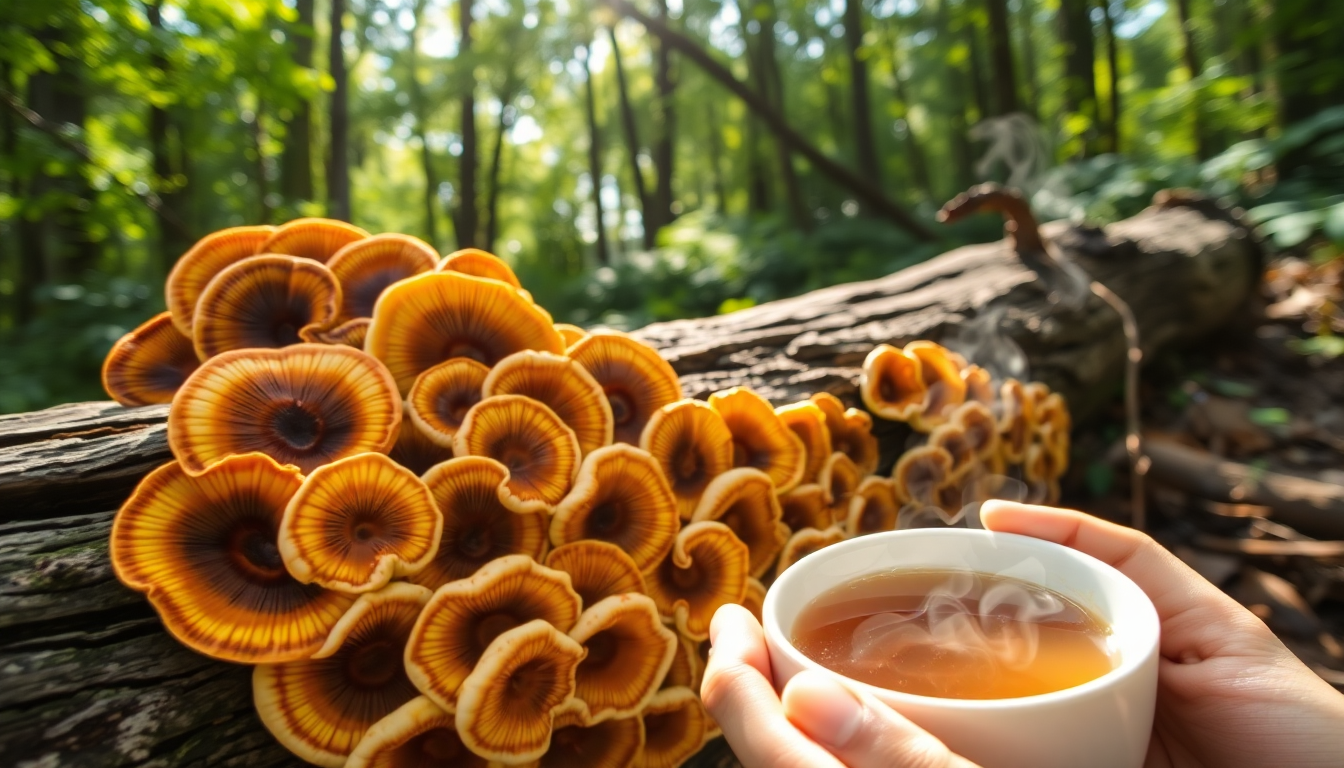
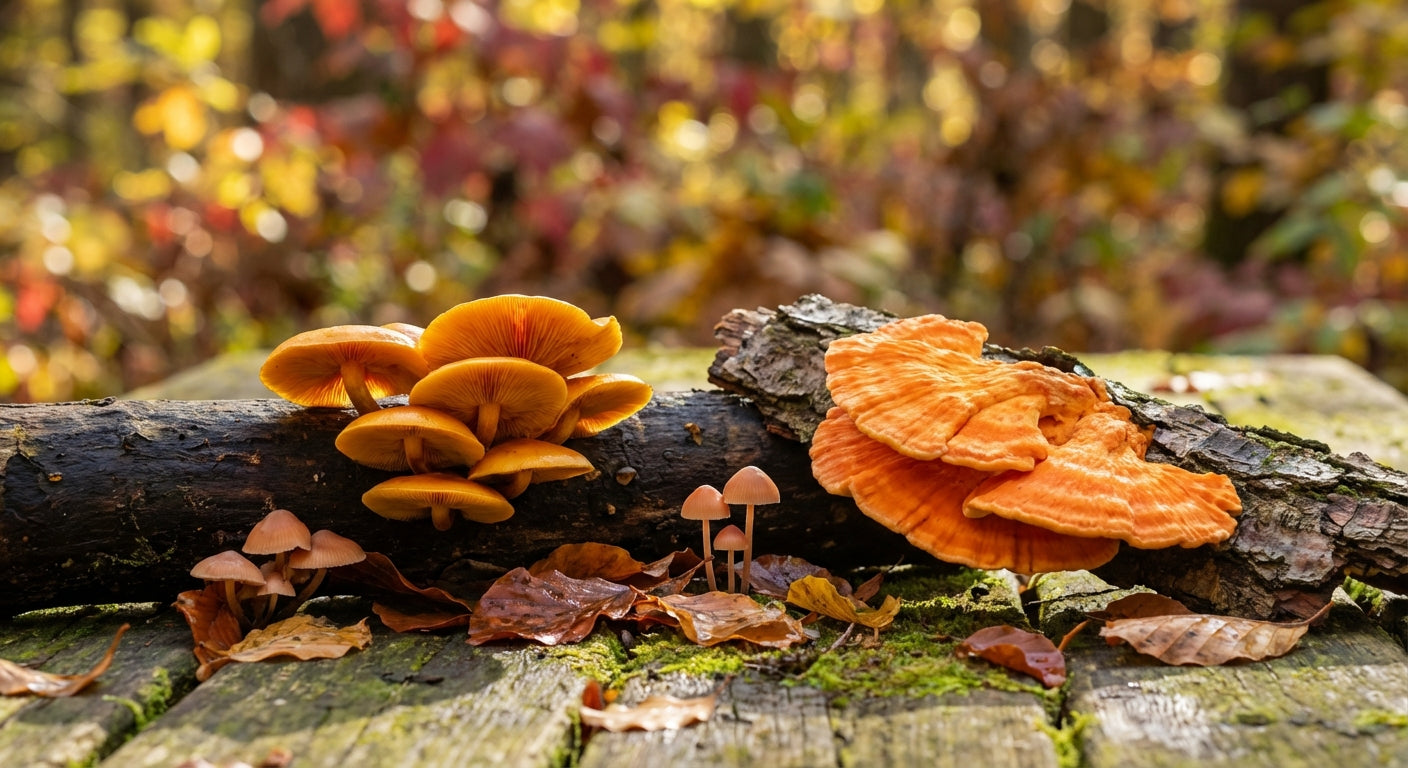
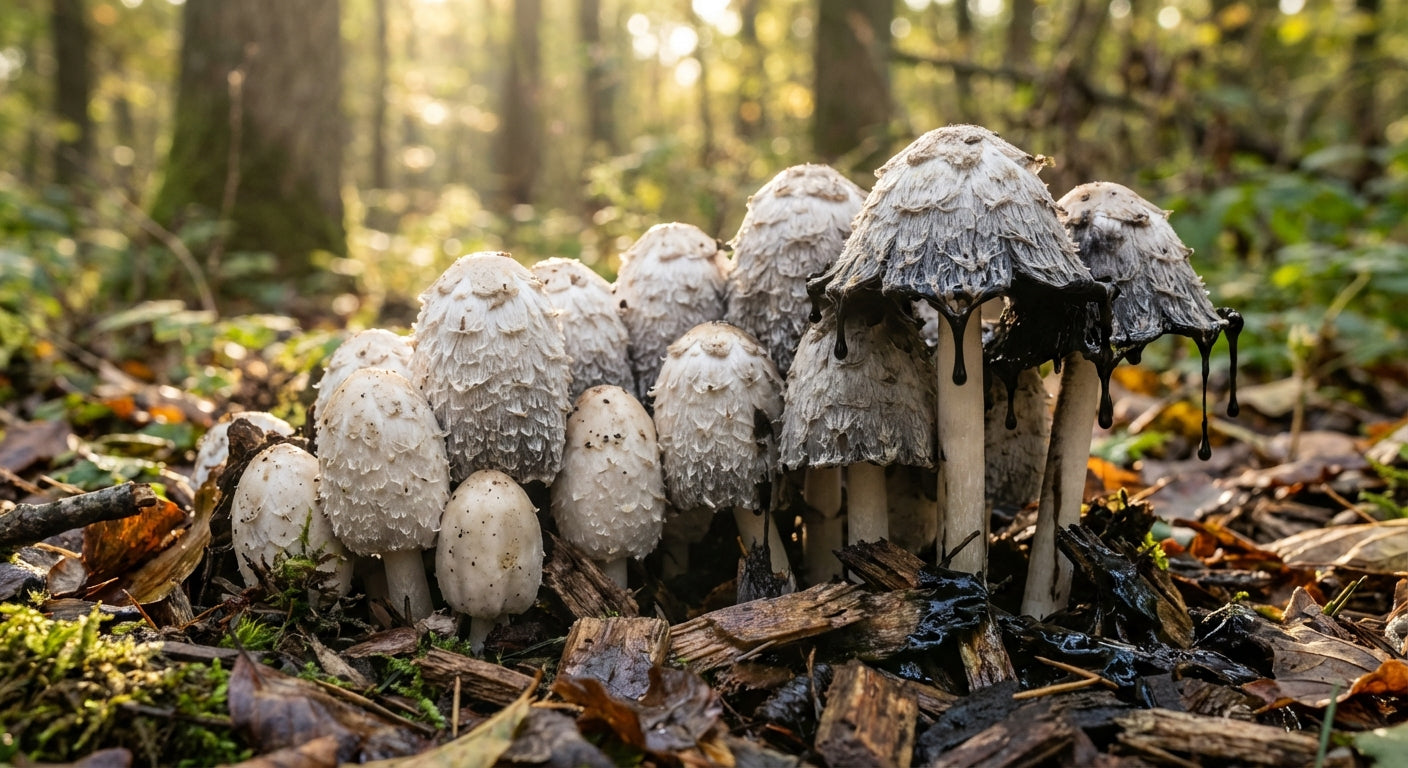
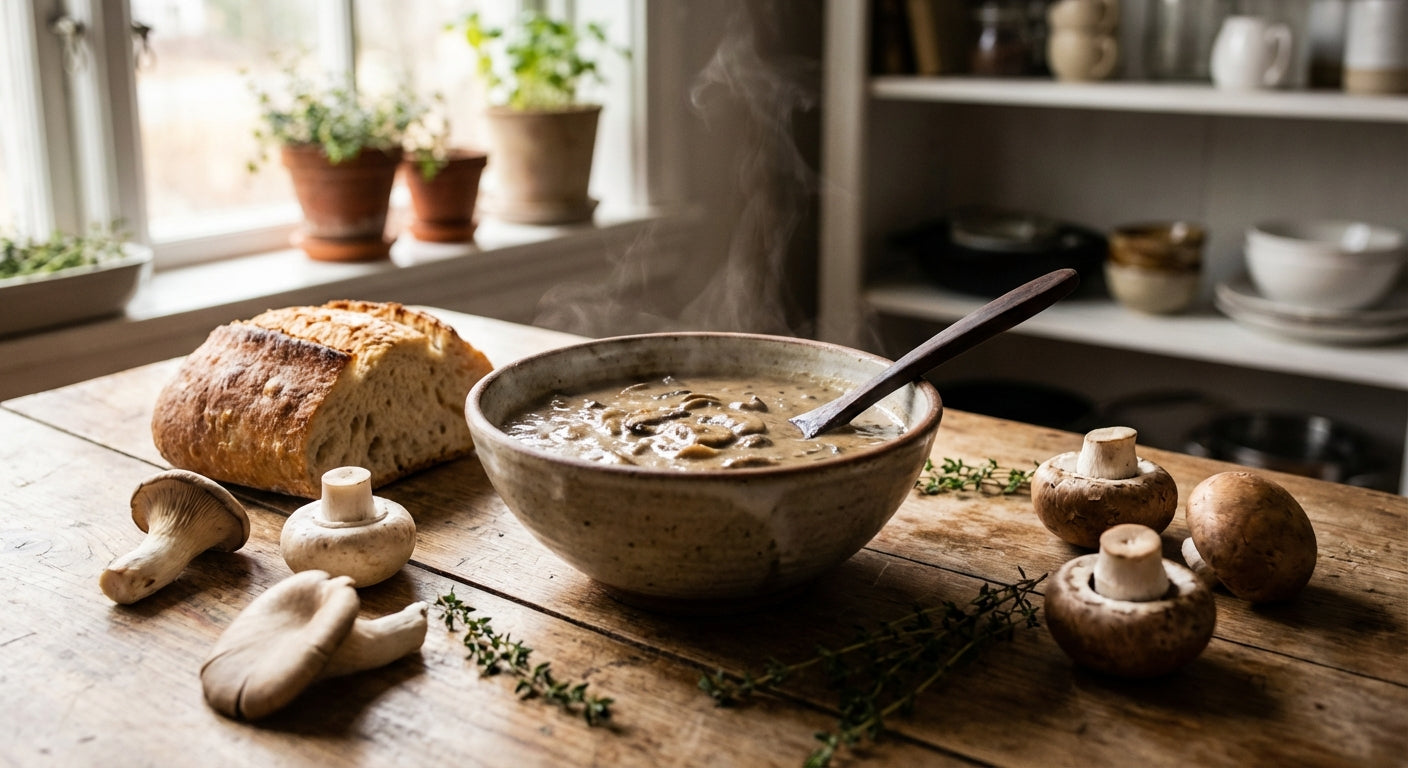
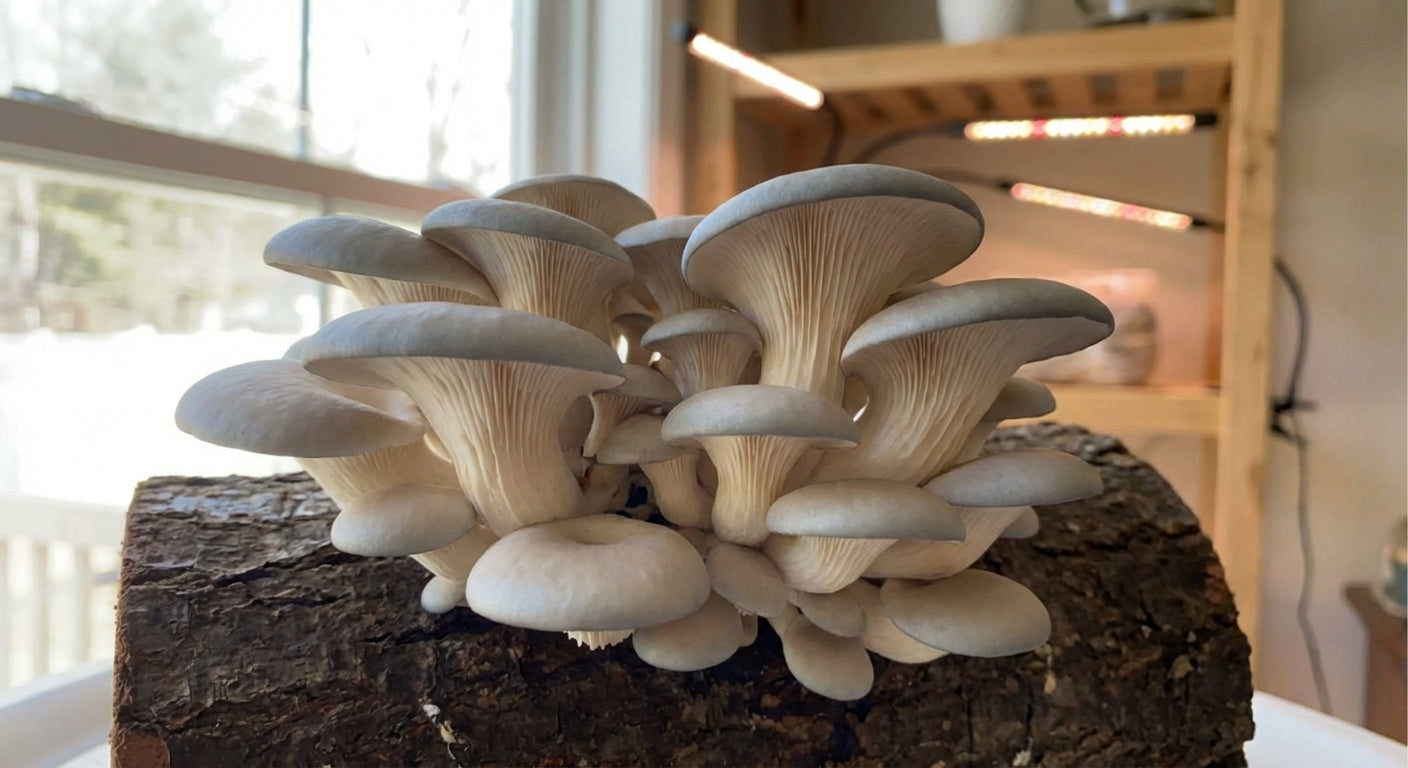
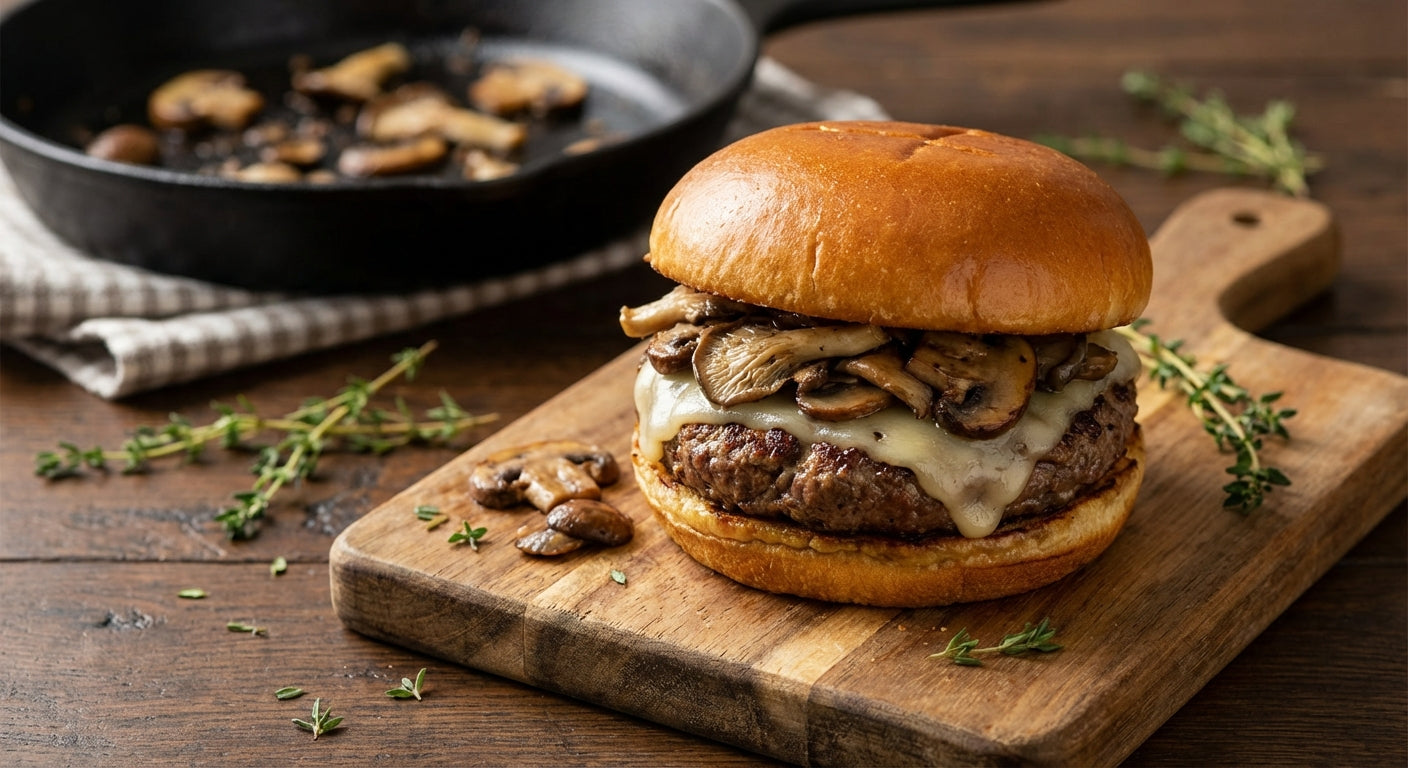





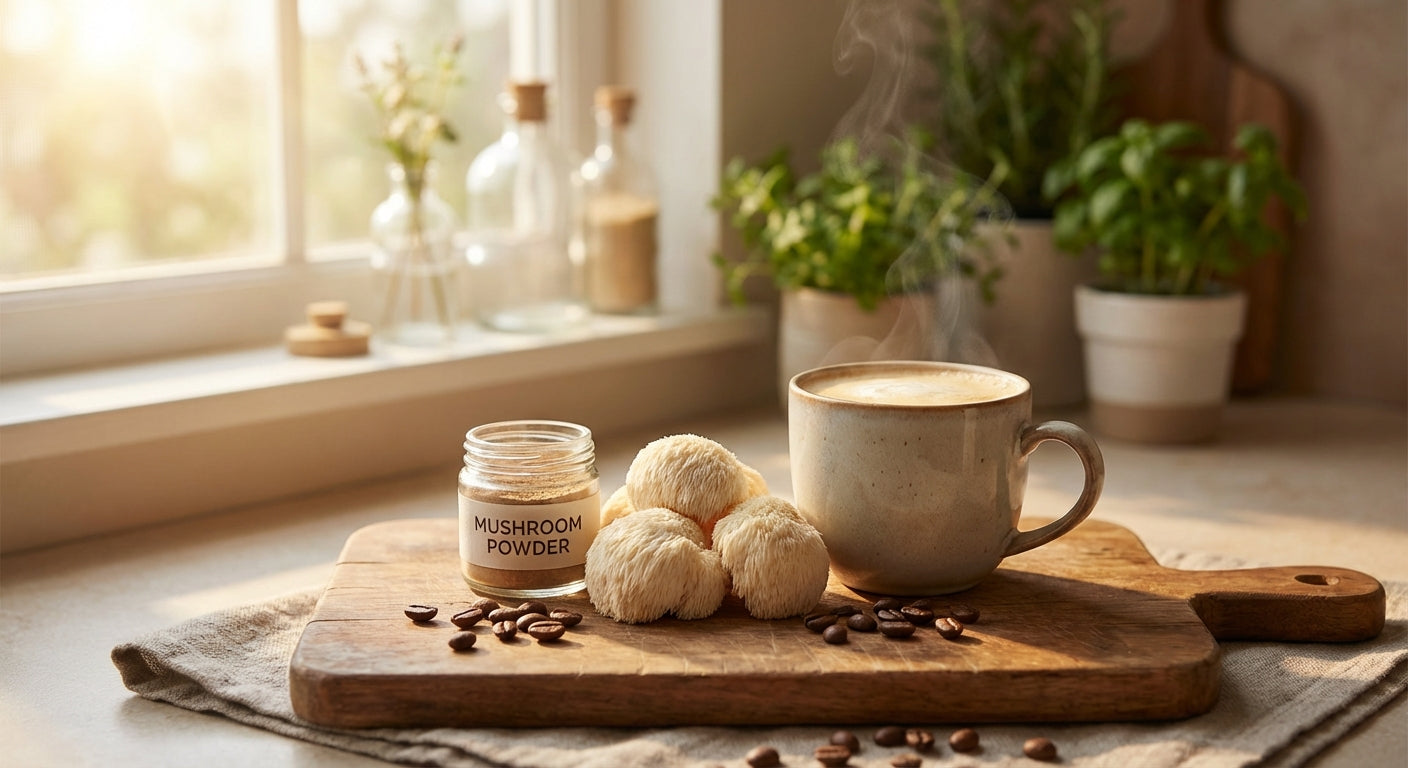
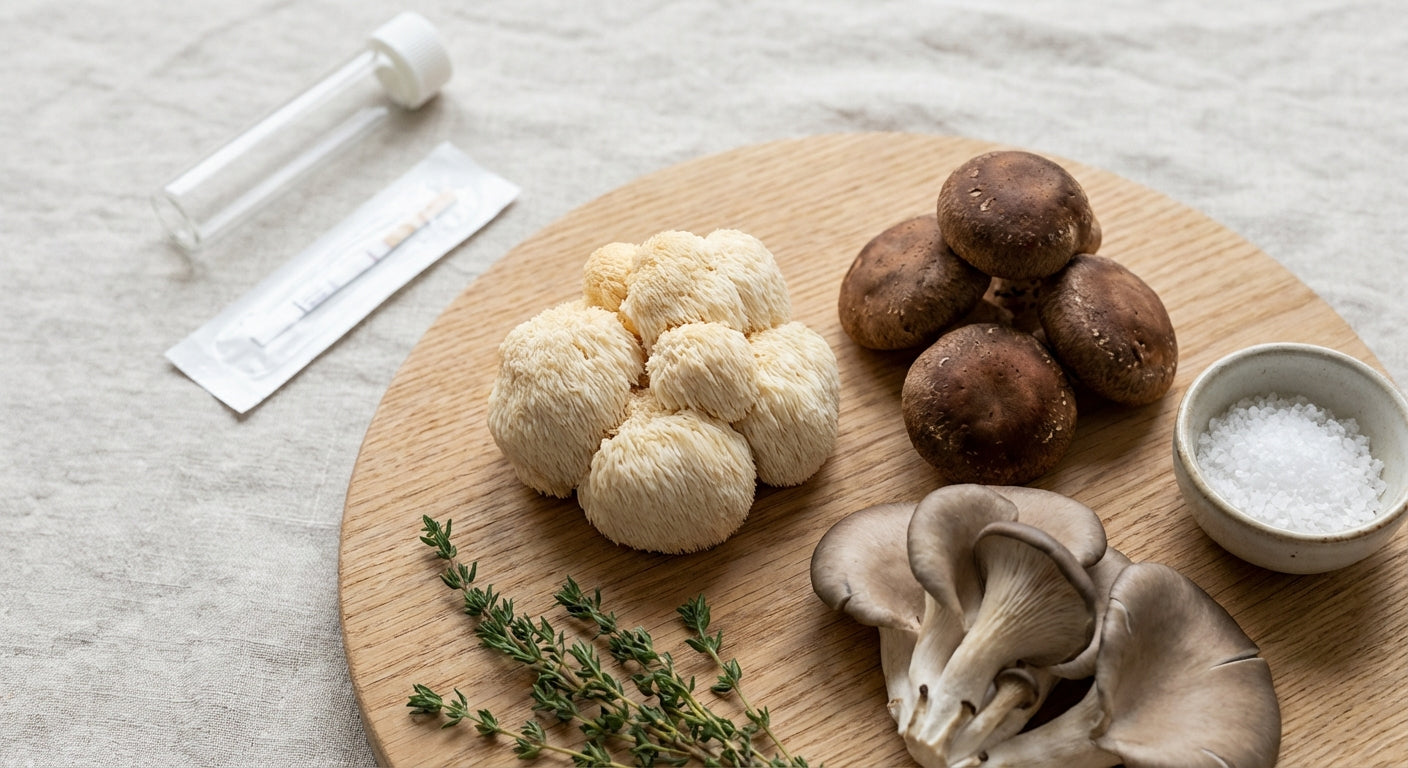
Share:
How to Identify Turkey Tail Mushrooms: A Complete Forager’s Guide
Turkey Tail Mushroom Cultivation Made Easy